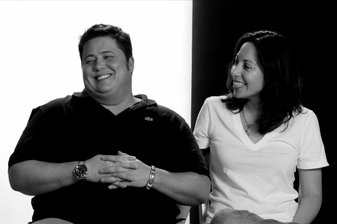Participants at the 10th annual Philadelphia Trans-Health Conference took a break from workshops last week to hear author and activist Chaz Bono detail the struggles and triumphs he faced in his very-public transition.
Bono was in town to read from and sign copies of his new book, “Transition,” last Friday, which flew from the table to the hands of the PTHC guests.
In an interview with PGN, Bono said the warm reception he received in Philly mirrored the reaction he and his book have been receiving throughout the nation.
“Transition” explores Bono’s journey of self-acceptance that led him to his public disclosure two years ago that he was transitioning to become a man.
While writing the book was empowering, Bono said, it was also painful.
“Going over it all again with a magnifying glass and dissecting it turned out to be much more difficult than I anticipated,” he said. “Once I was into my transition and after my top surgery, I started to feel really good, so it didn’t really strike me until I started writing how difficult my life had been up to that point. So to have to go back all the way to the beginning and look at everything was really a difficult process, but I’m glad I did it.”
The former Chastity Bono, child of famed gay icon Cher and the late entertainer-turned-politician Sonny Bono, came out as a lesbian in the 1990s.
In 2008, Bono began the transition from female to male, a process that was made public a year later — a disclosure Bono said was more challenging to face than when he came out the previous decade.
“It was a lot harder because this is something that took a lot more time to come to terms with personally,” he said. “Growing up, I was lucky that I had a lot of positive gay and lesbian role models in my life, and I knew what it means to gay and it didn’t scare me in the same way. But with this, it was really scary. I was afraid of rejection on every level if people found out and if this was made public. So it was almost a 10-year process for me of overcoming those obstacles that I had put up for myself in order to really be me.”
Since his transition became public, Bono has become a very visible face of the transgender community.
Last month, the Oprah Winfrey Network debuted the documentary “Becoming Chaz,” following Bono’s transition through his day-to-day life.
He said it was challenging to relinquish control of his story to the filmmakers and allow them to craft and edit the work, but added he was very impressed with the finished product.
Since entering the spotlight as a transgender man, Bono said he’s learned that his fears of rejection were largely unfounded.
“Everything I get is for the most part, about 99 percent, positive. I know I could probably go on a blog and find people saying horrible things about me, but that’s not what I care about,” he said. “What’s been rewarding is that I feel like I’m really helping people. Since the documentary aired and with the press I’ve done for the book recently, I’ve had so many people coming up to me and actually giving me tangible experiences of how my story has helped to change their lives for the better, and that means a lot.”
While he said he’s eager to offer hope to trans people with his story, he acknowledged that the transgender community still has myriad challenges to grapple with, such as name-change laws, health-insurance exclusion and the stall of the Employment Non-Discrimination Act.
“Getting ENDA passed with trans included is the most important first step for us and for the whole community,” he said. “I don’t know why that bill has seemed to be put on the back burner lately when it’s the one bill that, if it becomes law, will help every single person in our community. It’s been very frustrating to see that happen.”
The overarching issue of transphobia is beginning to come into the realm of the American consciousness, Bono said, adding much more progress is needed.
“I think it’s starting to happen, but it’s a slow process. That’s been the thing I feel like I can try to contribute to the most, as far as being out there and being public and talking about the most basic issues of what it means to be transgender. And that’s what I’ve tried to do with all of my work.”
Jen Colletta can be reached at [email protected].

